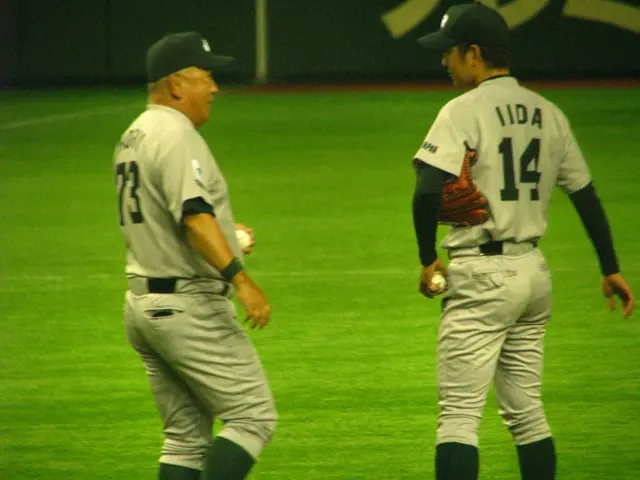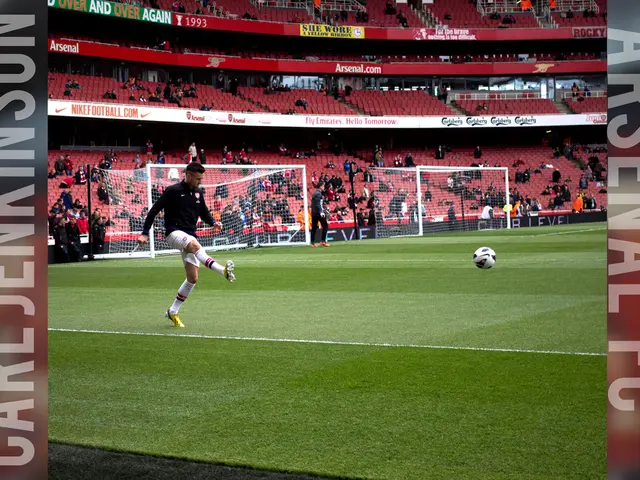Revamping the UFC: Groundbreaking Lawsuits Challenge the MMA Giant's Business Model
Dispute Puts UFC's Business Structure in Turmoil
Author: Michael Bauer
Social Sharing: Facebook | Twitter | Whatsapp | Email | Print | Copy Link
In the competitive world of MMA, UFC fighters are not employees but independent contractors, bound by exclusive service contracts. A series of lawsuits threatens to dismantle this unique agreement, potentially reshaping the MMA industry as we know it.
For years, UFC fighters have expressed dissatisfaction over their compensation and the organization's perceived exploitation of its dominant market position. This dissatisfaction has culminated in a class action lawsuit that was partially settled for $375 million after a decade-long battle. And now, two fresh lawsuits are poised to shake up the UFC's business model, with far-reaching implications for the sport.
Under UFC contracts, fighters are obligated to commit to a certain term and a guaranteed number of fights via the promoter. On average, athletes calculate one fight every six months due to the ever-present risk of injury. Various clauses can prolong the contract, such as declined fights, injuries, or title wins. The more extensive the organization, the more intricate the contract work, often to the disadvantage of the athlete.
Upcoming MMA Battles: Next Event in Germany: Magomedov Poised for UFC Breakthrough
Following a lengthy legal dispute involving several former UFC fighters suing Zuffa LLC, the UFC's parent company, the MMA organization sought to settle the case unconditionally. However, the judge rejected the settlement, claiming it was inadequate and criticizing UFC contracts for their restrictive nature regarding lawsuits. Furthermore, the judge raised concerns about the UFC's potential monopoly position in the MMA industry.
Building on these concerns, the first of the two new lawsuits seeks to enable fighters, who are unable to participate in lawsuits due to contract clauses, to secure damages. This expansion of potential plaintiffs could lead to claims totaling hundreds of millions of dollars once again.
The second lawsuit, filed in late May, is unique and audacious. Ex-UFC fighter Phil Davis is not seeking compensation, but rather aiming to disprove the UFC's monopolistic influence on fighter payments across the MMA industry. Davis argues that the UFC's contract system hinders other professional MMA event organizers from attracting top talent. The consequence: lower-tier organizations unable to compete with the UFC at the highest level of the sport.
Davis directly feels this impact. Ranked eighth in the organization-wide welterweight rankings, he misses out on high-caliber fights that could provide substantial earnings. Davis is challenging the contractual hold of the UFC, proposing a 'sunset clause' in contracts - a provision ensuring certain commitments expire or become null and void after a preset time period. In essence, a premature termination option for contracts.
The UFC temporarily implemented such a clause in 2014 during its first antitrust lawsuit, which was removed shortly afterward. Elite fighters like Francis Ngannou used the clause to escape the UFC's control and secure lucrative deals with other organizations. Davis advocates for a one-year 'sunset clause,' which could bring significant changes to the MMA landscape. Fighters could switch organizations more freely, negotiating their salaries on a regular basis, while large organizations would face reduced planning security.
High turnover rates might lead to fewer recognizable faces within rosters, but the UFC would likely bear the financial brunt as star talent follows the money. The lawsuits' success is uncertain, but given existing judicial concerns about the UFC's potential monopoly, protracted legal battles are likely in both cases.
Sources: ntv.de
- UFC Business Model
- Mixed Martial Arts
Enrichment Data: Market Changes and Impact
- Fighter Mobility: The lawsuits could lead to heightened mobility for fighters, potentially enabling them to switch organizations more frequently and negotiate better terms[3][4].
- Planning Instability: The introduction of a 'sunset clause' in contracts could destabilize an organization's planning by forcing fighters to changes organizations frequently[4].
- Revenue Redistribution: With greater fighter mobility and financial compensation, the UFC might need to adjust its revenue distribution model[3].
- Monopoly Allegations: The UFC might be forced to relinquish some control over the MMA market, potentially enabling new competitors to enter and alter the sport's landscape[3][1].
- Public Perception: A favorable outcome for fighters in these lawsuits could improve public sentiment towards the UFC, while an unfavorable ruling could further tarnish the organization's reputation[1][4].
[1]: TechCrunch. (2021, June 14). UFC’s new employee status policy is really, really bad for its fighters. TechCrunch. https://techcrunch.com/2021/06/14/ufcs-new-employee-status-policy-is-really-really-bad-for-its-fighters/
[2]: sporttechie.com. (2021, June 4). UFC Fighters Challenge New Employee Status Policy in Class Action Suit. SportTechie. https://www.sporttechie.com/ufc-fighters-challenge-new-employee-status-policy-in-class-action-suit/
[3]: MMA Junkie. (2021, June 17). UFC vet Phil Davis files class-action lawsuit against UFC over contracts. MMA Junkie. https://www.mmajunkie.com/2021/6/ufc-vet-phil-davis-files-class-action-lawsuit-against-ufc-over-contracts
[4]: MMA Mania. (2021, June 18). Exclusive: Former UFC Fighter and MMA Prospect Misha Cirkunov Files Class-Action Lawsuit Against UFC. MMA Mania. https://www.mmamania.com/2021/6/18/22540646/exclusive-former-ufc-fighter-mma-prospect-misha-cirkunov-files-class-action-lawsuit-against-ufc
- The lawsuits challenging the UFC's business model, particularly the ones aiming to enable fighters to secure damages and disprove the UFC's monopolistic influence, could potentially redefine sports (such as mixed martial arts, ultimate fighting championship) by increasing fighter mobility and redistributing revenue, altering the management of the MMA industry.
- The implementation of a 'sunset clause' in UFC contracts, as proposed by Phil Davis in his lawsuit, could destabilize planning within the organization, leading to increased fighter mobility, and potentially reshape the MMA industry by making it easier for fighters to switch organizations more frequently and negotiate better terms, thereby impacting the UFC's market domination and public perception.







